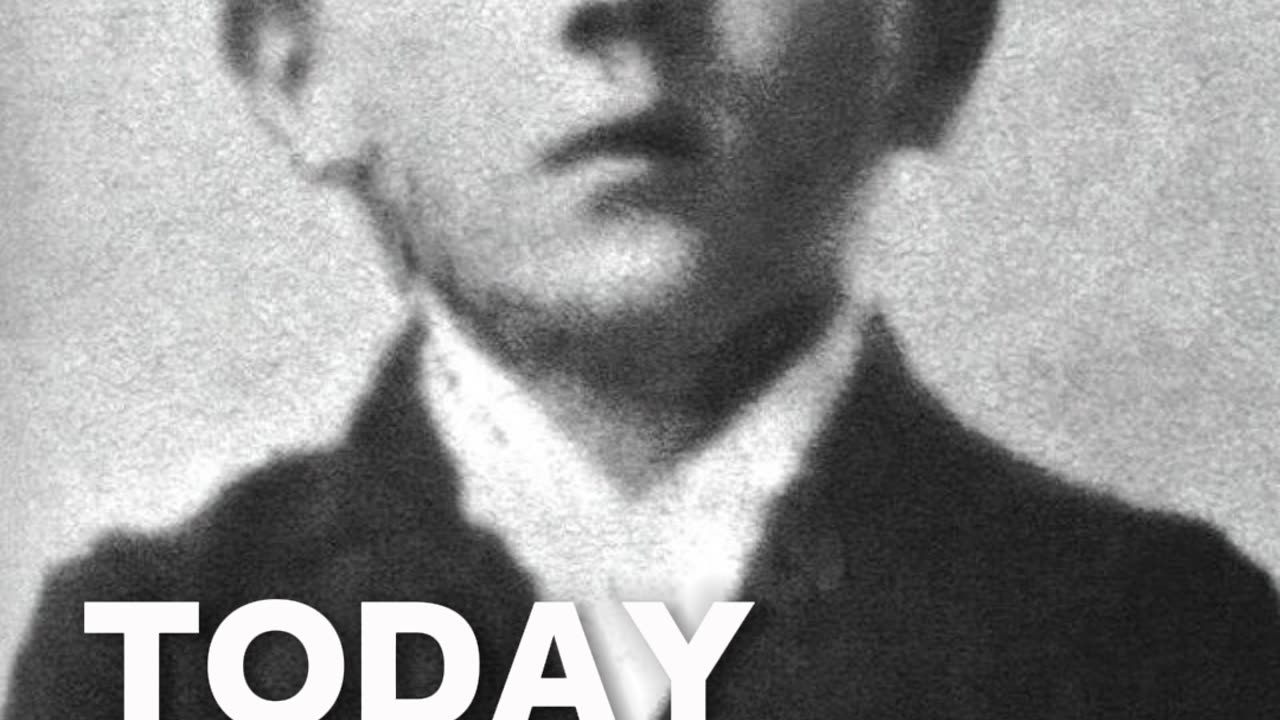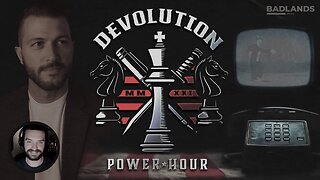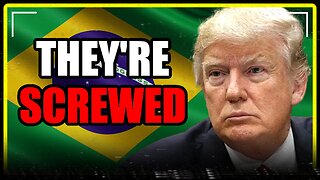Premium Only Content

Hitler's Speech in Munich – May 4, 1923
Background Leading Up to Hitler's Speech in Munich on May 4, 1923
Economic Crisis: In early 1923, Germany was suffering from severe economic difficulties, including hyperinflation, which caused massive financial hardship for the population. The value of the German mark plummeted, and the cost of living skyrocketed.
Political Turmoil: The Weimar Republic was experiencing significant political instability. Various extremist movements, including the Nazis, were gaining support as the public became increasingly disillusioned with the government’s ability to handle the crisis.
Occupation of the Ruhr: In January 1923, French and Belgian troops occupied the Ruhr region, Germany’s industrial heartland, as a response to Germany's failure to pay reparations required by the Treaty of Versailles. This occupation intensified economic and nationalistic tensions.
Nazi Party's Rise: The Nazi Party, led by Adolf Hitler, was rapidly growing in influence by exploiting national discontent and promoting a platform of nationalism, anti-Semitism, and opposition to the Treaty of Versailles.
Hitler's Speech in Munich – May 4, 1923
On May 4, 1923, Adolf Hitler delivered a speech in Munich, addressing the dire situation in Germany and outlining the Nazi Party’s vision for the nation's future.
Key Points of Hitler's Speech:
Condemnation of the Versailles Treaty: Hitler began by condemning the Treaty of Versailles, blaming it for Germany's economic and political woes. He argued that the treaty was an unjust imposition by the Allies, aimed at humiliating and weakening Germany.
Critique of the Weimar Government: He criticized the Weimar government for its inability to handle the country’s crises, portraying it as weak and incompetent. Hitler claimed that the government’s failures were responsible for the economic hardship and the occupation of the Ruhr.
Economic Recovery: Hitler emphasized the need for economic recovery and national self-sufficiency. He promised that under Nazi leadership, Germany would regain its economic stability and restore its industrial might.
Nationalism and Unity: A central theme of the speech was the call for national unity. Hitler urged all Germans to come together, transcending class and regional differences, to rebuild the nation. He portrayed the Nazi Party as the unifying force that would lead Germany to resurgence.
Anti-Semitic Rhetoric: The speech included strong anti-Semitic elements, with Hitler blaming Jews for Germany’s economic troubles and political instability. He used anti-Semitism to create a common enemy and to galvanize support for the Nazi cause.
Rejection of Marxism: Hitler denounced Marxism and
communism, portraying them as threats to Germany’s stability and prosperity. He argued that these ideologies were tools of Jewish influence and were responsible for the economic and social chaos.
Call to Action: Hitler called on his audience to support the Nazi Party actively. He emphasized the need for a strong, decisive leadership to overcome Germany’s challenges and to restore national pride and strength.
Analysis:
Hitler’s speech in Munich on May 4, 1923, was a pivotal moment in the Nazi Party’s rise, as he sought to capitalize on the prevailing discontent and position the party as the savior of Germany.
Exploiting Discontent: By condemning the Treaty of Versailles and the Weimar government, Hitler tapped into the widespread anger and frustration among Germans. This strategy helped him gain support from those who felt betrayed by their leaders and humiliated by the international community.
Promoting Nationalism: The emphasis on nationalism and unity aimed to rally the German people around a common cause. By calling for national unity and portraying the Nazi Party as the force that would restore Germany’s greatness, Hitler sought to build a broad base of support.
Targeting Jews and Marxists: The use of anti-Semitic and anti-Marxist rhetoric was intended to create scapegoats for Germany’s problems. By blaming Jews and Marxists, Hitler aimed to unite his followers against common enemies and to deflect blame from the party’s aggressive and radical policies.
Economic Promises: By promising economic recovery and self-sufficiency, Hitler aimed to address the immediate concerns of the population suffering from hyperinflation and economic hardship. These promises were designed to attract support from those who were desperate for a solution to their financial woes.
Mobilizing Support: The call to action was a crucial element of the speech. By urging active support for the Nazi Party, Hitler aimed to mobilize his followers and to expand the party’s influence and power.
Overall, Hitler’s speech in Munich on May 4, 1923, was a strategic effort to exploit the economic and political crises facing Germany. By condemning the Treaty of Versailles, criticizing the Weimar government, promoting nationalism, and using anti-Semitic and anti-Marxist rhetoric, Hitler sought to position the Nazi Party as the solution to Germany’s problems. This speech was an important step in the party’s efforts to gain broader support and to lay the groundwork for its eventual rise to power.
-
 1:49:58
1:49:58
Omar Elattar
5 days agoLUKE BELMAR: From Broke To $50 Million | Crypto Predictions | Truth About God, Bible & The Matrix
6.25K -
 10:17
10:17
Dr Disrespect
1 day agoIt's Time To Get Serious
118K17 -
 1:56:18
1:56:18
The Michelle Moore Show
18 hours ago'Parasites and Worms...What You Need To Know' Guest, Kim Rogers 'The Worm Queen' The Michelle Moore Show (July 16, 2025)
17K16 -
 33:32
33:32
Solar Groove Muzic
1 day ago $0.59 earnedSUMMER AFRO HOUSE | Amalfi Coast 2025 (Adam Port, Avicii, The Weeknd, Black Coffee, Diplo)
10.7K -
 39:22
39:22
The Brett Cooper Show
2 days ago $4.59 earnedBieber’s Big F-You To Hollywood & Trump Gets Ratio’d Over Epstein | Episode 48
11.8K11 -
 2:41:02
2:41:02
FreshandFit
7 hours agoFormer Escort vs Trad-Wife HEATED DEBATE
215K79 -
 2:04:47
2:04:47
Inverted World Live
9 hours agoDoomsday Clouds and Mega Tsunamis
97.7K8 -
 2:29:52
2:29:52
Badlands Media
15 hours agoDevolution Power Hour Ep. 372: Trump’s “I Told You So” Arc and the Collapse They Can’t Hide
87.8K34 -
 9:34:31
9:34:31
RalliedLIVE
14 hours ago $4.76 earned10 WINS WITH THE SHOTTY BOYS
92.5K2 -
 8:14
8:14
MattMorseTV
14 hours ago $5.67 earnedBrazil just FOUND OUT.
38K39